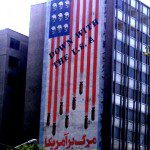
From my manuscript on Islam for Mormons:
The sixth of the five pillars of Islam never quite made it into the authoritative lists, although there were a number of prestigious thinkers who argued that it ought to be included. The word jihad is often translated as “holy war,” but its meaning is really broader than this.[1] Its primary definition is “battle,” “struggle,” or “striving.” Muhammad is said to have taught that “holy war,” of a literal, military kind, was merely the “lesser jihad”; the “greater jihad,” by contrast, was warfare or striving against the evil inclinations within one’s own soul. Traditionally, Islam has distinguished four distinct kinds of jihad: The jihad of the tongue is speaking about one’s faith, or what we would call doing missionary work. The jihad of the hand is putting one’s faith into action by good works. The jihad of the heart means to make one’s faith real a genuine spiritual force in one’s daily life and motivations. Finally, the jihad of the sword means to defend one’s faith when it comes under attack, which can include verbal apologetics as well as physical self-defense. Some modernizing Muslims argue, I think rather plausibly, that jihad in today’s world can be any practical action (not mere meditation) aimed at building up Islam and the Muslims. It emphasizes making one’s religion real in one’s life and in one’s society. Thus, for instance, it might involve working to strengthen a Muslim nation’s industrial base or education system. In this sense, jihad would not be so very different from the Latter-day Saint notion of “building up the kingdom of God,” which can include such very this-worldly activities as colonizing, digging irrigation canals, sprucing up a yard or a barn, or working in a welfare cannery.
Nevertheless, “holy war” is what most Westerners who have heard the term will think of in connection with it, and the subject is important enough that it merits some attention on our part. First of all, jihad is primarily seen by Muslims as defensive. Although the Qur’an generally advises that we requite evil with good, it does authorize defensive warfare.[2]
Fight for the sake of God those that fight against you, but do not attack them first.[3]
Permission to take up arms is hereby given to those who are attacked, because they have been wronged.[4]
[1] Pronounced “jee-had.”
[2] 23:96.
[3] 2:190.
[4] 22:39.












